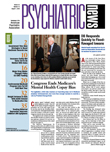The answer to the article titled “How Successful Is Massachusetts Insurance Reform Effort?” in the June 20 issue is this: not a whole heck of a lot.
The universal health care coverage plan in that state has failed in two important aspects. First, it did not result in universal coverage. There is still a significant number of “uninsured,” approximately 300,000 individuals.
Second, it is well over budget and will continue to cost more than originally projected. The low-cost or no-cost public insurance option called Commonwealth Care was originally estimated to cost Massachusetts $472 million in 2007. It ended up costing $625 million. According to the May 21 Wall Street Journal, the 2009 cost estimate is $869 million, and this figure is already considered too low.
Supposedly, one of the driving forces for universal coverage was to reduce the cost of health care. Just as with Medicare and Medicaid, which also promised reduced costs at their start, the opposite has occurred. Taxpayers in other states such as California and Wisconsin were lucky enough that their respective legislatures “failed” in their attempt to provide universal health care coverage. It is classic bureaucratic upside-down reasoning to call this costly entitlement program a success.
Interestingly, proponents of a single-payer health care system are also critical of the Massachusetts program, albeit for the wrong reasons. The former editor-in-chief of the New England Journal of Medicine, Marcia Angell, M.D., titled her critique in the April 21 American Prospect,“ Health Reform You Shouldn't Believe In.” Angell blames private industry for increased costs: “There's a fundamental illogic to trying to contain costs in a market-based system.” Dr. Angell needs education in basic principles and the history of economics. In a free-market environment, competitive forces drive down consumer costs, increase productivity, and create innovation.
The true lesson to be learned from the Massachusetts program is that government regulations and manipulations corrupt and corrode free markets with resultant increased costs and numerous inefficiencies. The key to affordable health care for as many Americans as possible is to keep government intrusions very limited. Unfortunately, Massachusetts is going in the wrong direction. Too bad for the state's residents, their left-wing ideologues will only continue the shift to more government control.
